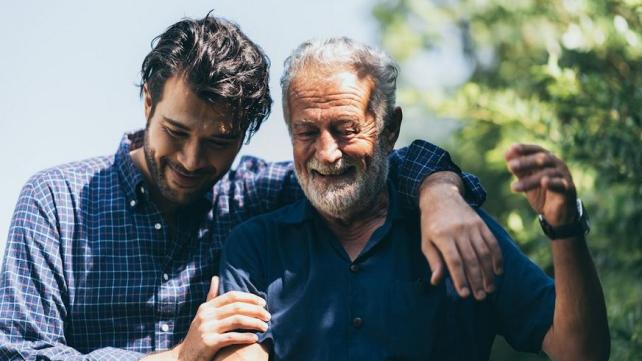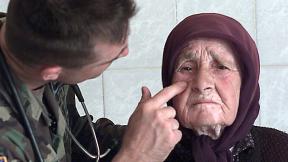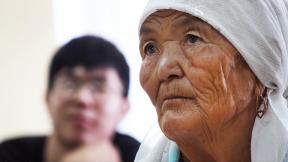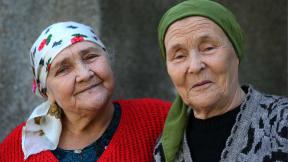
Elders are the backbone of our communities. They have laid the foundation for the future, constructing and maintaining the mosques in which we pray and the institutions where our children learn about Islam. Many have dedicated their lives to raising generations upon the faith. Others have stood up to discrimination and fought tirelessly for our right to practice our religion freely and authentically. Some have even left their homelands for better opportunities for their families. These individuals deserve nothing less than our utmost kindness and respect, especially as they reach an age where they may no longer be able to care for themselves.
In Islam, elders hold a revered status, one deeply embedded in both the Quran and Prophetic traditions. Allah and His Messenger, peace and blessings be upon him, have provided clear guidance on how to honor and treat the elderly with the dignity they rightfully deserve. It is evident in the Islamic tradition that the younger generations bear a special responsibility to respect and care for seniors, whether they are family members, neighbors, or even strangers. When it comes to our parents, Allah says:
“For your Lord has decreed that you worship none but Him. And honor your parents. If one or both of them reach old age in your care, never say to them ˹even˺ ‘ugh,’ nor yell at them. Rather, address them respectfully.”
(Surah Al-Isra, 17:23)
If Islam forbids even uttering "ugh" in frustration when addressing aging parents, imagine the status elders hold in society. The Prophet Muhammad, peace and blessings be upon him, understood this deeply. As an orphan raised by seniors during his early life, such as his grandfather Abdul Muttalib and his uncle Abu Talib, he learned at a young age the honor and respect due to them. When he reached prophethood and the Muslim community grew under his leadership, many elders also embraced Islam. During his prophethood, he exemplified how to be a respectful teacher and guide, even to the oldest of his companions and tribal leaders.
Here are some ways in which the Prophet Muhammad, peace and blessings be upon him, cared for elders during his lifetime:
1. He kept a sense of humor with them.
We know from numerous narrations that the Prophet Muhammad, peace and blessings be upon him, used to smile often and had an approachable disposition. He knew that having a sense of humor is a great way to help people feel comfortable, including elders. A famous hadith tells the story of an old woman who went to the Prophet Muhammad with a special request.
“She said, ‘Oh Messenger of Allah, ask Allah to let me enter Paradise!’ The Prophet, replied in jest, ‘O Umm Fulan (so-and-so)! Old women will not enter Paradise!’ She turned away crying, so then he said, ‘Tell her that she will not enter it as an old woman for Allah says:
Indeed, We will have perfectly created their mates (i.e. women of Paradise) making them virgins, loving and of equal age…’ ( Surah Al-Waqiʿah: 35-37)”
(Al-Shama’il al-Muhammadiyyah)
In a lighthearted manner, the Prophet, peace and blessings be upon him, reassured the old woman that not only would she be able to enter Paradise, but that she would be young again. This promise automatically turned her grief into hope and joy.
2. He was patient with them (even if they were not Muslim).
Although Abu Bakr, the great companion and successor to the Messenger of Allah, peace and blessings be upon him, was among the first people to embrace Islam, his father Abu Quhafa did not convert until after the conquest of Mecca. By that time, he was a frail and blind old man whose hair and beard were completely white. In his Sirah of the Prophet series, Dr. Yasir Qadhi tells the story of how he embraced Islam. He said that when the Prophet was sitting and accepting the oath of allegiance, Asma bint Abi Bakr brought her grandfather by the hand. Abu Bakr was sitting with the Prophet and when he saw Abu Quhafa, he said, "Why didn't you leave the old man? We would have come to him in his own house." Abu Bakr responded, "No, wallahi, ya Rasulullah. It is more befitting he comes to you." And so, he was brought in front of the Prophet and he eventually accepted Islam.
It took Abu Quhafa over twenty years to accept Islam, but the Prophet, peace and blessings be upon him, still welcomed him with respect and open arms. Another companion who witnessed this moment named Jabir narrated that when Abu Quhafa was brought on the day of the Conquest of Mecca with his head and beard white like hyssop, the Prophet said:
“Change this (meaning the hair color) with something but avoid black.”
(Muslim)
3. He took care of their needs.
It is evident from the story mentioned above that the Prophet, peace and blessings be upon him, was patient with elders and he understood their needs. In so doing, he set a good example for his followers. One companion named Abu Salih reported:
Umar ibn al-Khattab, may Allah be pleased with him, was committed to an old, disabled blind woman who lived on the outskirts of Medina. At night he would draw water for her and manage her affairs. When he visited her one time, he found that someone else had preceded him and taken care of her needs. So, Umar came to her more than once, lest someone come to her before him, and he lied in wait. He found that it was Abu Bakr al-Siddiq, may Allah be pleased with him, who had already come to her; he was Caliph at the time.
(Tarikh Dimashq)
Abu Bakr and Umar ibn Al-Khattab valued the importance of fulfilling the rights of the elders, so much so that they were committed to serving them despite their positions of leadership.
4. He recognized their good qualities.
A modern trend is to wipe away the signs of aging, often driven by societal pressure to maintain a youthful appearance at all costs. This trend, fueled by the beauty industry and media, glorifies youth while stigmatizing the natural aging process. Anti-aging products, cosmetic procedures, and even extreme measures like surgery are marketed as solutions to “defeat” aging, creating the illusion that growing older is something to be avoided rather than embraced.
However, this unrealistic perspective overlooks the inherent dignity and wisdom that come with age. In contrast, Islam teaches that aging is not something to be feared or hidden but honored and respected. The Prophet, peace and blessings be upon him, said:
“Whoever has grown a gray hair in the way of Allah, it will be a light for him on the Day of Resurrection.”
(Sunan al-Tirmidhi)
5. He honored them.
Recognizing their dignified status, the Prophet Muhammad, peace and blessings be upon him, honored the elders and commanded his followers to do the same. He said:
“Verily, part of glorifying Allah is to honor the gray-haired Muslim and the bearer of the Quran, who is neither extravagant nor neglectful of it, and to honor the just ruler.”
(Sunan Abu Dawud)
He also said:
“No youth honors his elders but that Allah will appoint someone to honor him in his old age.”
(Sunan al-Tirmidhi)
6. He visited them when they were sick and called them to Islam.
The Prophet, peace and blessings be upon him, used to visit the sick whether they were young or seniors. When his uncle and caretaker, Abu Talib, was old and on his deathbed, the Prophet visited him and asked him to embrace Islam. On another occasion, he visited a man afflicted with a high fever and offered him comforting words. He said:
"’Don't worry, Allah willing, (your sickness will be) an expiation for your sins. The man said, ‘No, it is but a fever that is boiling within an old man and will send him to his grave.’ On that, the Prophet said, ‘Then yes, it is so.’"
(Sahih Bukhari)
Notice how the old man was stubborn in his illness, but rather than contradict him, the Prophet, peace and blessings be upon him, chose to be easy and simply agree with his words. How many of us would have tried to argue with the man or defend the Prophet’s honor, peace and blessings be upon him? It was from his wisdom that he chose the route of patience and humility considering the situation.
7. He was firm against those who disrespected them.
The Prophet, peace and blessings be upon him, modeled excellent behavior for the believers, setting a timeless example of how to honor and care for elders. His teachings were not just gentle reminders; they were firm instructions that stressed the seriousness of this obligation. He issued a stern warning to those who failed in this duty. Abdullah ibn Amr reported:
The Messenger of Allah, peace and blessings be upon him, said, “Whoever does not show mercy to our young ones, or acknowledge the rights of our elders, is not one of us.”
(Musnad Aḥmad)
This statement makes it clear that respect for the elderly is not optional, rather it is a core principle of being part of the Muslim community. Several other companions narrated similar ahadith, emphasizing the importance of this teaching for generations to come. The Prophet’s warning urges us to reflect on the importance of maintaining dignity and compassion across generations, reminding us that how we treat our elders and children reflects the level of our faith.
The process of aging is explained in the Quran as a return to a state of weakness after strength and inactivity after vigor. Those who reach old age will inevitably experience these vulnerable stages in life – returning to a state of dependence just like our children. No one is immune to the process of aging, no matter what society may offer in terms of anti-aging supplements, products, or procedures. Because becoming old is a reality we all face, we should be mindful and empathetic, knowing that one day we too may find ourselves in need of the same care, respect, love, and compassion.
Wendy Díaz is a Puerto Rican Muslim writer, award-winning poet, translator, and mother of six (ages ranging from infant to teen). She is the co-founder of Hablamos Islam, a non-profit organization that produces educational resources about Islam in Spanish (hablamosislam.org). She has written, illustrated, and published over a dozen children’s books and currently lives with her family in Maryland. Follow Wendy Díaz on social media @authorwendydiaz and @hablamosislam.








Add new comment